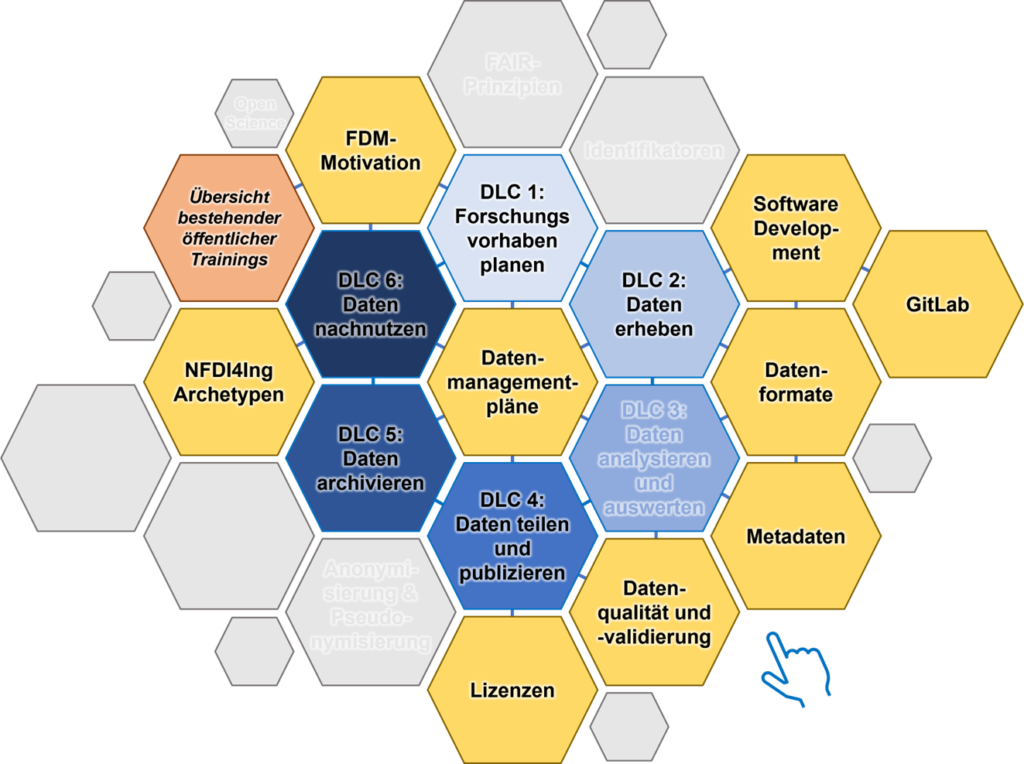NFDI4Ing’s Special Interest Groups (SIGs) are the place for exchange between NFDI4Ing and interested experts from the community. In the SIG “RDM Training”, we work together on reviewing and improving available RDM training material. So far, the focus was on providing and improving more diverse content, give use cases specifically from engineering, and adequately implementing the learning objective matrix.

Bottom-up community engagement
To foster the exchange with the community, NFDI4Ing has it’s “Special Interest Group” format. In these SIGs, matter experts and anyone interested in the particular topic the group wants to address can come together to discuss and share knowledge. One of the longest running SIGs in NFDI4Ing is the SIG “RDM Training”. As the name suggests, they provide a forum to develop, discuss, and improve research data management training material. The SIG now completed their current season 2023/2024 – time to look back and take stock.
The basis of the SIGs activities are the RDM trainings for the engineering sciences curated and/or developed by NFDI4Ing and available at https://education.nfdi4ing.de/. During the season 2023/2024 a dedicated session was designed for each of the major topics, each with a similiar sequence of procedure.
First, the currently available trainings were presented ‘as is’ to the SIG participants. In some of the events, external impulse talks from invited guests motivated the topic as well. After that, the participants were asked to give their viewpoints and impressions on the following questions:
- Does the generic RDM learning objective matrix apply for the engineering sciences as well, e.g., in terms of data formats? Are there specifics in the engineering sciences that need to be addressed further?
- What are the personal experiences of the participants in the respective topic (e.g., archiving of research data)?
- Are there areas not yet addressed by the training material?
- Is there existing training material recommended for reuse in NFDI4Ing?
- Are there suggestions on how the learning progress inside the trainings could be tracked (e.g., interactive quizzes)?
The feedback will directly affect the further development of the training materials. The team of the SIG RDM training says a big THANK YOU to all participants and guest speakers!
Although NFDI4Ing’s RDM training team is already quite interdisciplinary, the community-based approached brought in even more facets of engineering, as well as perspectives from overarching fields, for example specific metadata or legal aspects.
The SIG will now take a break to incorporate the various impulses into the existing training materials. As soon as the dates for the next meetings are set, they will be announced in the NFDI4Ing newsletter, on the NFDI4Ing website, and of course on the SIG mailing list. If you are not yet subscribed, you can do so here: subscribe.
Mario Moser
